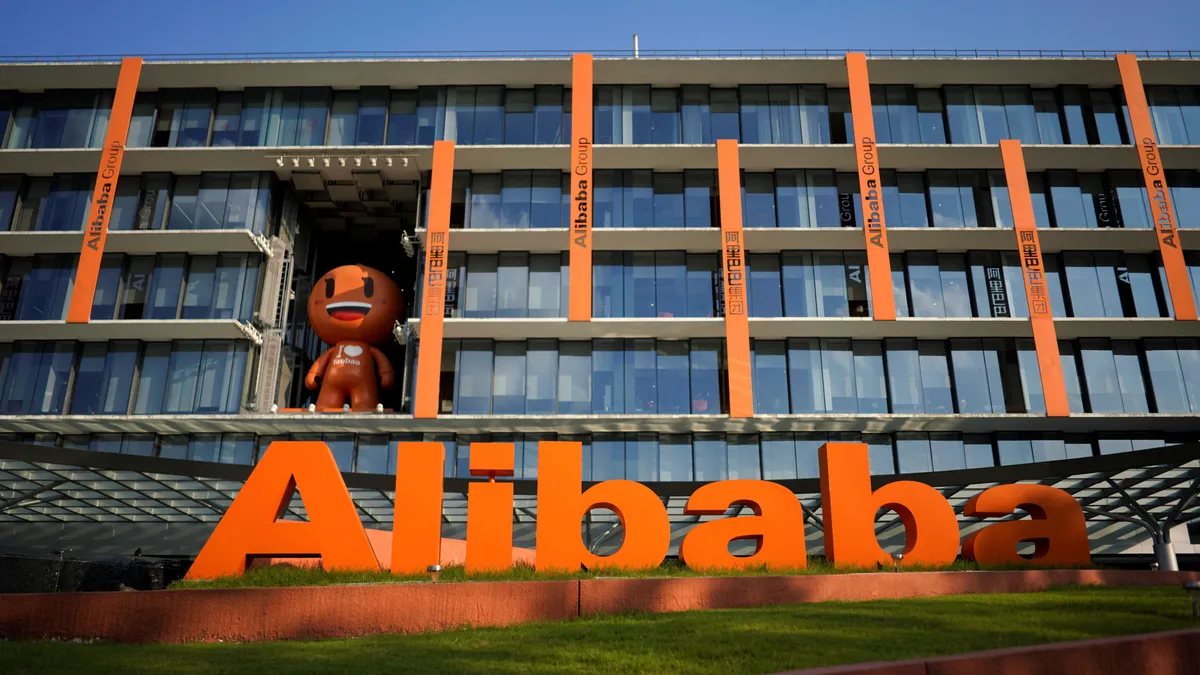About Alibaba
Alibaba is a Chinese multinational technology conglomerate founded in 1999 by Jack Ma. The company is headquartered in Hangzhou, China, and operates in a variety of sectors, including e-commerce, retail, cloud computing, digital media and entertainment, and more. Alibaba is considered one of the largest e-commerce companies in the world and has a significant presence in China and other countries.
Alibaba’s e-commerce platform, known as Taobao, is the largest online shopping website in China, with millions of registered users and millions of daily transactions. The company also operates other e-commerce platforms, including Tmall, which focuses on branded products, and AliExpress, which serves customers outside of China.
In addition to e-commerce, Alibaba offers cloud computing services through its subsidiary, Alibaba Cloud, which is one of the largest cloud computing providers in China and the world. Alibaba also has investments in digital media and entertainment, logistics, and financial technology.
Alibaba went public in 2014, raising a record-breaking $25 billion in its initial public offering (IPO) on the New York Stock Exchange. The company is currently listed on the NYSE under the ticker symbol “BABA.”
Company and Evolution
As mentioned earlier, Alibaba is a Chinese multinational technology conglomerate founded in 1999 by Jack Ma. The company started as a business-to-business (B2B) online marketplace, connecting Chinese manufacturers with overseas buyers. The name “Alibaba” was chosen because it is easy to pronounce and is well-known around the world.
In 2003, Alibaba launched its consumer-facing platform, Taobao, which quickly became the largest online shopping website in China. The company also launched other e-commerce platforms, including Tmall, which focuses on branded products, and AliExpress, which serves customers outside of China.
Over the years, Alibaba has expanded into other sectors, such as cloud computing, digital media and entertainment, logistics, and financial technology. In 2009, the company launched its cloud computing subsidiary, Alibaba Cloud, which has grown to become one of the largest cloud computing providers in China and the world.
In 2014, Alibaba went public in a record-breaking initial public offering (IPO) on the New York Stock Exchange, raising $25 billion. This was the largest IPO in history at the time, surpassing the previous record set by Facebook in 2012.

Since then, Alibaba has continued to grow and expand its business. In 2015, the company launched its online payment platform, Alipay, which has become one of the most widely used payment platforms in China. Alibaba has also made significant investments in logistics, with the goal of building a comprehensive logistics network to support its e-commerce operations.
In recent years, Alibaba has faced some challenges, including increased competition in the Chinese e-commerce market and scrutiny from Chinese regulators over issues such as anti-competitive practices and data privacy. However, the company remains a major player in the Chinese and global technology markets and continues to innovate and expand its business.
Products and Services
Alibaba offers a wide range of products and services across various sectors, including e-commerce, cloud computing, digital media and entertainment, logistics, and financial technology. Here are some of Alibaba’s key products and services:
- E-commerce platforms: Alibaba operates several e-commerce platforms, including Taobao, which is the largest online shopping website in China, Tmall, which focuses on branded products, and AliExpress, which serves customers outside of China.
- Cloud computing: Alibaba Cloud is the company’s cloud computing subsidiary, offering a range of cloud computing services, including computing, storage, and big data analytics.
- Digital media and entertainment: Alibaba has invested in a range of digital media and entertainment companies, including video streaming platform Youku Tudou and social networking app Weibo.
- Logistics: Alibaba has made significant investments in logistics, with the goal of building a comprehensive logistics network to support its e-commerce operations. This includes investments in delivery companies and the development of its own logistics infrastructure.
- Financial technology: Alibaba’s financial technology subsidiary, Ant Group, offers a range of financial products and services, including mobile payments, loans, and wealth management services.
In addition to these key products and services, Alibaba also operates a range of other businesses, including online travel booking platform Fliggy, local services platform Koubei, and artificial intelligence research lab Damo Academy.

Alibaba’s international expansion
Alibaba has expanded beyond China and into other markets, including Southeast Asia, India, Europe, and the United States. Here are some key ways in which Alibaba has expanded internationally:
- Cross-border e-commerce: It has focused on expanding its cross-border e-commerce business, particularly through its AliExpress platform. AliExpress allows Chinese businesses to sell their products to consumers in other countries, and the platform has expanded rapidly in recent years, with more than 100 million buyers outside of China.
- Investments in other companies: Alibaba has made a number of investments in other companies around the world, including Southeast Asian e-commerce platform Lazada, Indian e-commerce platform Paytm, and online retailer Zulily in the United States.
- Partnerships and acquisitions: Alibaba has also formed partnerships and made acquisitions to expand its presence in other markets. For example, Alibaba acquired a controlling stake in Southeast Asian e-commerce platform Lazada in 2016, and it formed a joint venture with Russian internet company Mail.ru in 2019 to expand its presence in Russia.
- Localized e-commerce platforms: Alibaba has also launched localized e-commerce platforms in other markets, such as Tmall World, which is aimed at Chinese consumers living abroad, and AliExpress Russia, which is specifically tailored to the Russian market.
Alibaba’s international expansion has been driven in part by the company’s goal of becoming a global leader in e-commerce and digital technology. The company has also faced increased competition in the Chinese market, and expanding internationally has allowed it to diversify its revenue streams and mitigate some of the risks associated with relying solely on the Chinese market.
Conclusion
In conclusion, Alibaba is a Chinese technology conglomerate that operates across a wide range of sectors, including e-commerce, cloud computing, digital media and entertainment, logistics, and financial technology. The company’s e-commerce platforms, including Taobao, Tmall, and AliExpress, are among the largest in the world, and Alibaba has expanded beyond China to other markets through investments, partnerships, and localized platforms. Additionally, Alibaba’s cloud computing subsidiary, Alibaba Cloud, has become a major player in the global cloud computing market, and the company’s investments in logistics and financial technology have further diversified its revenue streams. Despite facing challenges from regulatory authorities in China, Alibaba’s international expansion and broad portfolio of businesses have helped it become one of the most valuable and influential technology companies in the world.
















